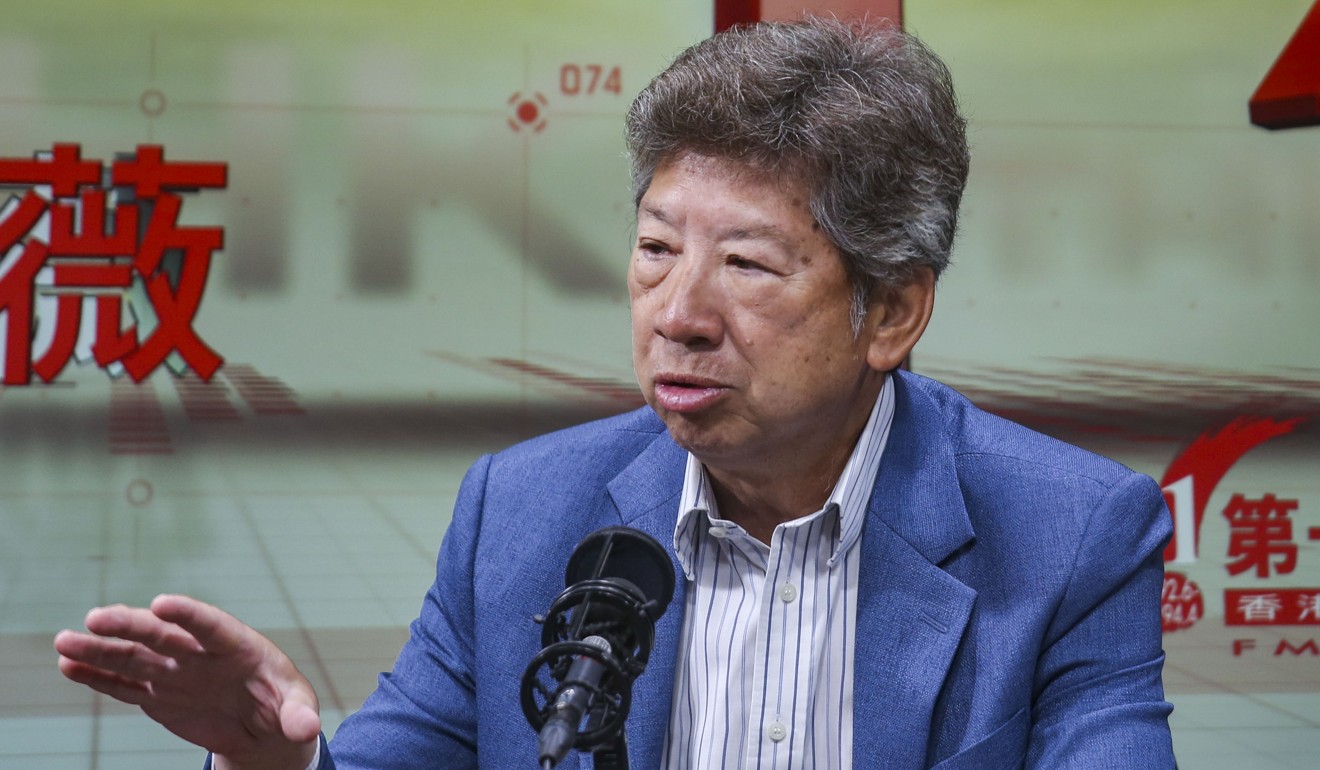
Government adviser Ronny Tong defends Hong Kong police’s use of sedition laws, after arrest of opposition politician Cheng Lai-king
- Executive councillor insists age-old statute offers the only legislation against hate crimes in the city
- But top legal scholar says it now flies in the face of freedoms guaranteed under the Basic Law, and would be challenged in court

Hong Kong’s sedition laws, though nearly 80 years old, are still necessary to provide the only offence against hate crimes in the city, a top government adviser insisted on Friday, after an opposition politician was arrested for an online post against a police officer.
Ronny Tong Ka-wah made the defence of the statute as one legal scholar noted that the rarely used law had always been vaguely worded and politically charged, and predicted appeals which could go all the way to the top court.
Cheng Lai-king, chairwoman of Central and Western District Council, was arrested during Thursday’s small hours, under the legislation predating the second world war. A day earlier, the 60-year-old Democratic Party veteran shared – and later deleted – a Facebook post that detailed the name and identification number of a police officer said to have shot a journalist in the eye with a non-lethal projectile during an anti-government protest in September. The post called for “an eye for an eye”.
The arrest has already drawn criticism from the pro-democracy camp, which said it would have a chilling effect on free speech.
But Ronny Tong Ka-wah, a member of the Executive Council and former chairman of the Bar Association, said on Friday the use of anti-sedition legislation was, in general, reasonable.
“I think sedition is the only offence in Hong Kong against hate crimes,” Tong told a radio programme on Friday, noting that national security laws called for under the city’s mini-constitution, the Basic Law, had not been enacted.
After Cheng’s arrest, police did not spell out the alleged seditious intent involved, but mentioned potential incitement of “hatred or violence”.
The crime of sedition passed into law in 1938. It prohibits seditious acts or even the use of “any seditious words”. It has been used rarely since the 1967 riots.

Tong said the offence’s age did not mean it was no longer usable, while conceding that it focused on people’s speech and there was room for amendment.
“If we make a [new] law now ... or amend this legislation, we can limit its application to incitement of violence. This is workable, but we must follow the legal procedures,” Tong said, adding that he was not advocating the legislation of Article 23.
Article 23 of the Basic Law states that the city must enact national security laws to prohibit sedition and six other crimes including treason and subversion against Beijing. The government was forced to shelve attempts to enact it in 2003, after half a million people took to the streets.
In December, Chief Executive Carrie Lam Cheng Yuet-ngor said her government would take a “prudent” approach and create favourable conditions for the legislation, but the priority was to restore peace and order to the city after the months-long protests.
Once the case is brought to the court, I’m almost certain that the controversy on the offence violating the freedoms guaranteed in the Basic Law will be brought up
Tong’s former ally, Civic Party chairman Alan Leong Kah-kit, told the same programme the sedition law was not in line with human rights protections guaranteed under the Basic Law, and was now used to suppress political dissent.
Tong disagreed. “Many people say freedom of speech is absolute, but it’s wrong and misleading,” he said, stressing that the civil right could be restricted on the grounds of protection of national security, public safety and public health, and the courts would do a balancing test.
He added that a prosecution for sedition would require the written approval of the secretary for justice and corroborating evidence.
Johannes Chan Man-mun, a constitutional law professor at the University of Hong Kong, said the definition of “seditious intention” in the Crimes Ordinance was very vague and subjective. Among other descriptions, it includes “intention to promote feelings of ill-will and enmity between different classes of the population of Hong Kong”.
“What is ill-will? What is enmity? The wording is quite broad and doesn’t include violence,” he said.
“The government has been avoiding using this offence,” Chan said, adding that it could detonate a political bomb if reviewed in court.
He noted that Beijing mouthpiece Ta Kung Pao was convicted of seditious publication for criticism of the colonial government in the 1950s.
“Under the normal operation of the government, Cheng would not be charged with this offence,” he said.
“Once the case is brought to the court, I’m almost certain that the controversy on the offence violating the freedoms guaranteed in the Basic Law will be brought up,” Chan said, expecting a challenge would be launched and the case would end up at the Court of Final Appeal.